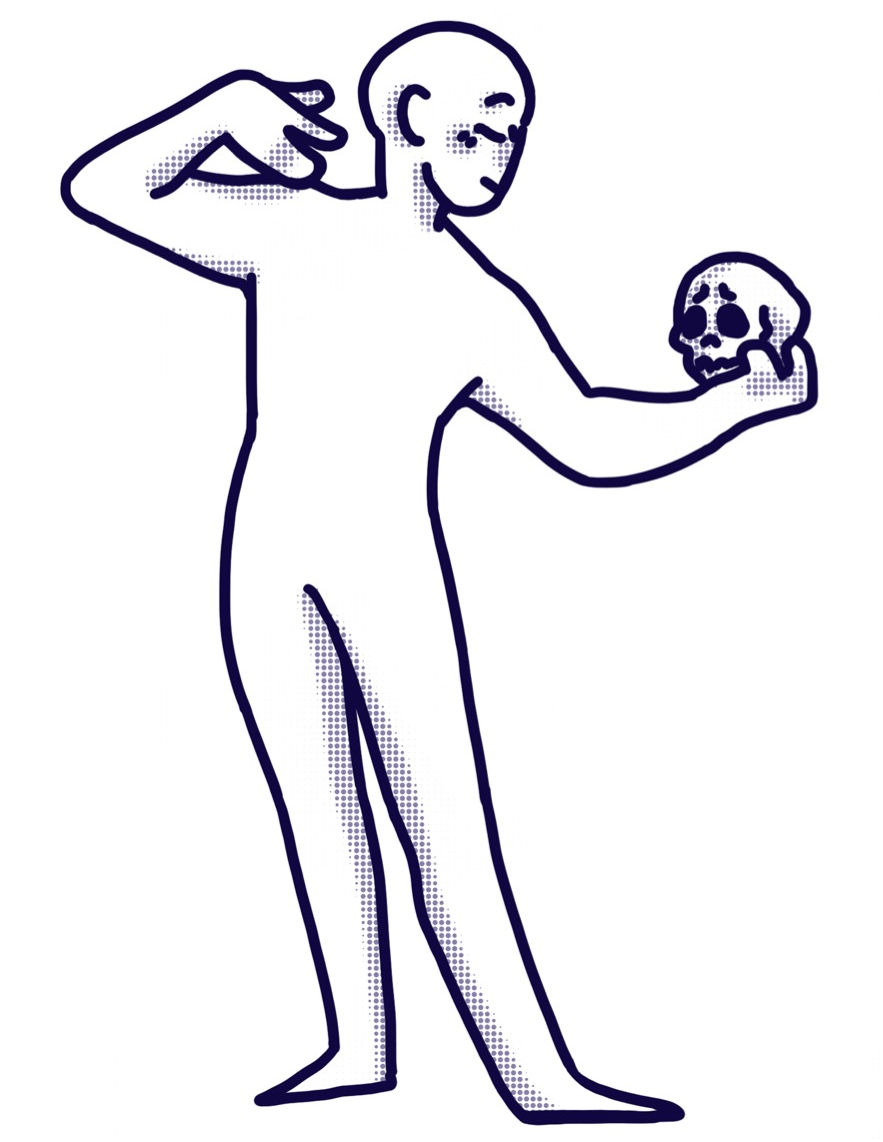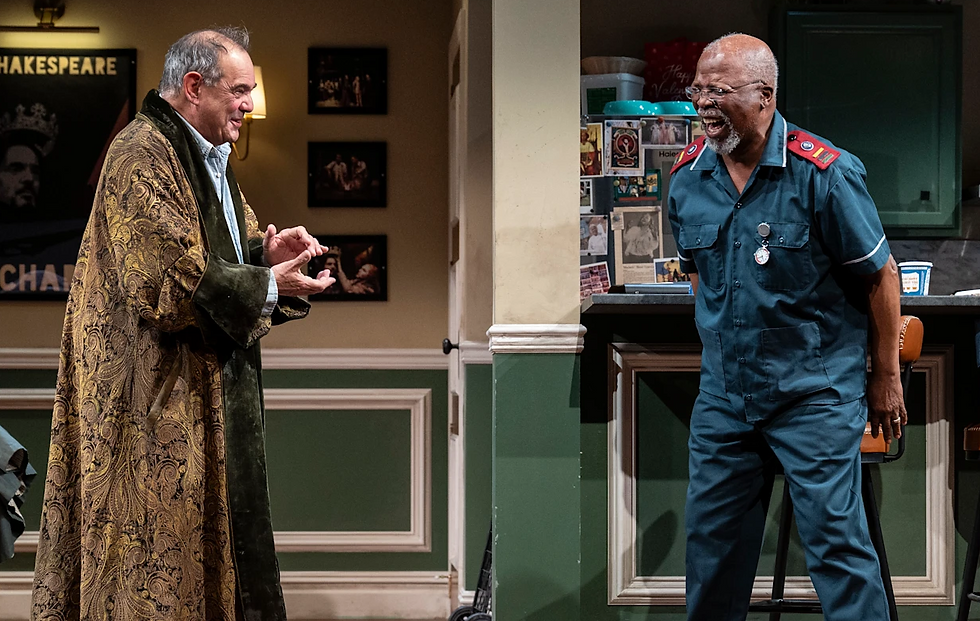Play of the Week: Kunene and the King
- Patrick Regal
- Mar 21
- 2 min read
Updated: May 14

There's an old ballad, with a title inspired by an even older phrase, called "He Ain't Heavy, He's My Brother." The meaning is fairly transparent, that a brother, one that doesn't necessarily need to be biological, could never be too much to handle. "His welfare is of my concern / no burden is he to bear," goes the tune. I've always found it a touching sentiment and a tear-jerking song. I thought about that song a lot when while watching Kunene and the King at D.C.'s Shakespeare Theatre Company. At one point, it even occurred to me that you could call the play "He's Damn Heavy, He's My Sister."
Let me explain: Lunga Kunene (John Kani, the playwright and international theatre legend) and Jack Morris (Edward Gero, D.C. theatre legend) are total opposites. Kunene is caring, thoughtful, and hospitable. Jack is abrasive, full of himself, an actor always seeking the spotlight - they're the classic odd couple. Jack is prepping his next role as the dying King Lear, as he himself is dying of Stage IV cancer. Kunene is his live-in nurse, a "Sister" (it "has nothing to do with gender" in South Africa, he explains), and the target of most of Jack's drunken fury.
And Jack seems to have plenty to be upset about. The cancer, naturally, that's causing him to lose his mind, body, and spirit. His undertaking of Lear is causing stress as he can't seem to remember any of his lines (there's a great comic moment where Jack explains to Kunene what it's like to be on-stage and "go up") and he's also just bothered by Kunene's general presence. His new roommate is black, and as a white man in a post-apartheid South Africa, there are probably other people he would choose to live his final days with.
The play, written by Kani and directed by Ruben Santiago-Hudson, isn't exactly subtle. Kani's script often resorts to "white people think this while black people think that" diatribes, and that can feel too easy at times. It runs the risk of the two characters becoming stereotypes or mouthpieces instead of actual characters, but I'm also not going to pretend like I know more than John Kani when it comes to South African sociopolitics. Or that I know more than John Kani when it comes to playwriting. I will defer here to the master, and I am appreciative of the apartheid crash course.
The play, which can be both funny and insightful, ultimately feels successful on both an intimate and a larger scale. Perhaps the occasional line feels obvious, and a few of those added together can be a bit annoying, but the odd couple stuff between them is too good and the larger conversation too important to minimize.
Kani has done the play before, starring opposite Antony Sher, in both England and South Africa. In moving to the States (STC artistic director Simon Godwin is relying on production company Octopus Theatricals to flesh out a full season), and following the death of Sher, Kani is joined by Gero, and seeing them do what they do best is worth the price of admission alone. Just like their characters, they may be from different worlds, but sharing the stage, and a good laugh, is the ultimate uniting force.




Comments